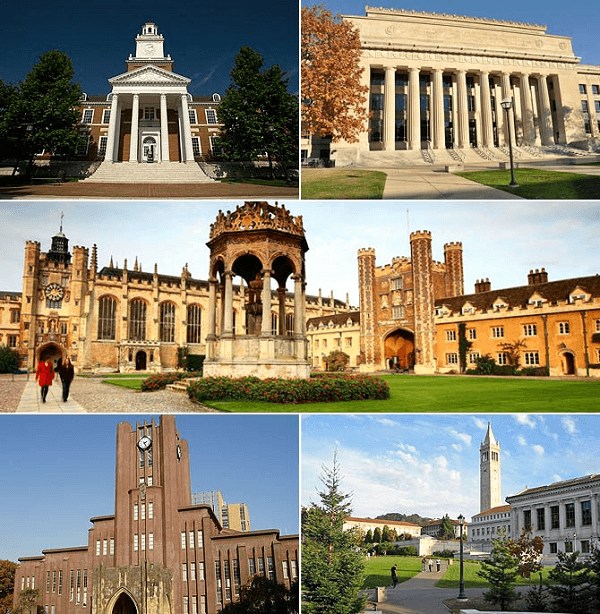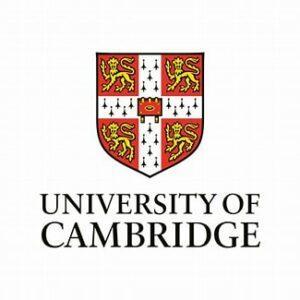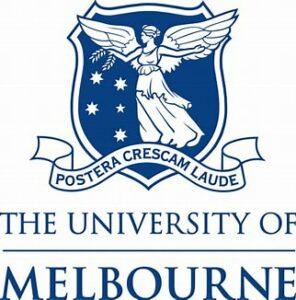Top 10 Career Focused Universities of the World
Thank you for reading this post, don't forget to subscribe!
Md. Joynal Abdin*
Business Consultant & Digital Marketer
Co-Founder & CEO of Bangladesh Trade Center
A career-focused university, also known as a vocational or professional university, is an institution of higher education that places a strong emphasis on preparing students for specific careers or professional fields. These universities typically offer specialized programs and curriculum designed to develop the practical skills, knowledge, and competencies required for success in specific industries or occupations.
Characteristics of career-focused universities:
- Specialized Programs: These universities offer a range of programs and degrees that are directly aligned with specific industries or professions. They may focus on areas such as business, engineering, healthcare, technology, or creative arts.
- Practical Training and Experiential Learning: Career-focused universities often prioritize hands-on learning experiences, internships, co-op programs, or industry placements. They aim to provide students with real-world exposure and practical skills that are directly applicable to their chosen careers.
- Industry Partnerships: These universities establish strong connections and partnerships with employers, professional organizations, and industry leaders. These relationships facilitate internships, job placements, networking opportunities, and access to industry-specific resources.
- Career Services and Support: Career-focused universities offer robust career services departments that assist students with job placement, resume writing, interview preparation, and other career-related resources. They may also organize career fairs and networking events to connect students with potential employers.
- Alumni Network: These universities often have active and engaged alumni networks, which can provide valuable mentorship, job opportunities, and professional connections for current students and recent graduates.
- Curriculum Alignment: The curriculum of career-focused universities is typically designed to align with industry standards and requirements. It may include courses that emphasize practical skills, industry-specific knowledge, and relevant technologies or tools.
It’s important to note that not all universities exclusively focus on career preparation. Many traditional universities also provide a well-rounded education that combines academic learning with broader personal development. The concept of a career-focused university caters specifically to individuals who prioritize practical skills and industry readiness in their education.
Top 10 Career Focused Universities:
While the concept of “career-focused” universities can vary depending on individual preferences and goals, here are ten universities that are known for their strong emphasis on preparing students for successful careers:
- Massachusetts Institute of Technology (MIT) – USA
- Stanford University – USA
- Harvard University – USA
- University of Oxford – UK
- University of Cambridge – UK
- California Institute of Technology (Caltech) – USA
- Imperial College London – UK
- ETH Zurich – Switzerland
- National University of Singapore (NUS) – Singapore
- University of Melbourne – Australia
These universities are renowned for their academic rigor, research opportunities, strong alumni networks, and partnerships with industries, all of which contribute to their reputation for producing graduates who excel in their chosen fields. However, it’s important to note that career success is ultimately determined by individual efforts, skills, and experiences, so it’s crucial for students to take advantage of the resources and opportunities available to them at any university they attend.
Massachusetts Institute of Technology (MIT) is a prestigious university located in Cambridge, Massachusetts, USA. It is renowned for its strong emphasis on science, technology, engineering, and mathematics (STEM) education, making it one of the world’s leading institutions in these fields. MIT is widely recognized for its cutting-edge research, innovation, and academic excellence.
Here are some key features and highlights of MIT:
- STEM Excellence: MIT is particularly known for its programs in engineering, computer science, mathematics, physics, and other STEM disciplines. It consistently ranks among the top universities worldwide in these fields.
- Research Opportunities: The university is a hub for groundbreaking research and innovation. It offers numerous research centers, laboratories, and institutes, providing students with opportunities to engage in cutting-edge research projects alongside renowned faculty members.
- Entrepreneurial Culture: MIT has a strong culture of entrepreneurship and innovation. It supports and encourages students to transform their ideas into viable startups through resources like the Martin Trust Center for MIT Entrepreneurship and various entrepreneurship competitions.
- Interdisciplinary Approach: MIT promotes interdisciplinary collaboration and encourages students to explore diverse areas of study. Many programs and research projects at MIT bridge multiple disciplines, fostering innovation at the intersection of different fields.
- Maker Culture: The “maker” culture is deeply ingrained at MIT, emphasizing hands-on learning and experimentation. The campus features numerous fabrication labs, such as the MIT Hobby Shop and the MIT Media Lab, where students can bring their ideas to life.
- Open Course Ware (OCW): MIT pioneered the OpenCourseWare initiative, which provides free and open access to a vast collection of MIT course materials, lectures, and resources. This initiative allows anyone around the world to benefit from MIT’s educational offerings.
- Strong Industry Connections: MIT has strong connections with industry partners, both within the United States and internationally. These partnerships facilitate research collaborations, internships, and job opportunities for students.
- Prestigious Faculty: MIT boasts a faculty composed of renowned researchers, industry experts, and Nobel laureates. Students have the opportunity to learn from and collaborate with some of the brightest minds in their respective fields.
- Supportive Community: MIT fosters a vibrant and collaborative community, encouraging students to collaborate and exchange ideas. The university offers numerous student clubs, organizations, and extracurricular activities that cater to a wide range of interests.
- Impactful Innovations: MIT has been responsible for many significant scientific breakthroughs and technological advancements throughout its history. Notable innovations include the World Wide Web, RSA encryption, GPS, and numerous advancements in robotics, artificial intelligence, and biotechnology.
MIT’s commitment to excellence, innovation, and interdisciplinary collaboration has solidified its reputation as a global leader in STEM education and research. It attracts highly motivated and talented students from around the world who aspire to make a meaningful impact in their chosen fields.
Stanford University is a prestigious private research university located in Stanford, California, USA. It is one of the world’s leading institutions for higher education and research. Established in 1885 by Leland Stanford and his wife Jane Stanford in memory of their son, the university has grown to become a globally recognized institution known for its academic excellence and contributions to various fields.
Here are some key points about Stanford University:
- Academics: Stanford offers a wide range of undergraduate and graduate programs in various disciplines, including humanities, sciences, engineering, social sciences, business, law, medicine, and more. It is renowned for its strong emphasis on research and innovation.
- Campus: Stanford’s campus spans 8,180 acres and is situated in the heart of Silicon Valley, providing an intellectually stimulating environment that fosters innovation and collaboration.
- Research: The university is a major center for scientific research, and it has numerous research institutes and centers dedicated to various fields of study. Stanford faculty, students, and alumni have made significant contributions to advancing knowledge and technology.
- Notable Alumni: Stanford has a distinguished list of alumni, including entrepreneurs, business leaders, Nobel laureates, Turing Award winners, astronauts, and prominent figures in various fields.
- Athletics: Stanford’s athletic teams are known as the Stanford Cardinal. The university competes in the NCAA Division I, and its sports teams have a rich history of success in various sports.
- Admission: Stanford is highly selective in its admissions process, consistently ranking among the most competitive universities in the United States.
Stanford University’s reputation, world-class faculty, and vibrant campus culture make it a top choice for students seeking a high-quality education and a stimulating intellectual environment.
Harvard University is a prestigious private Ivy League research university located in Cambridge, Massachusetts, United States. It is one of the oldest and most renowned universities in the world, known for its academic excellence, rigorous curriculum, and global impact.
Here are some key points about Harvard University:
- Academic Excellence: Harvard offers a wide range of undergraduate and graduate programs across various disciplines, including arts and humanities, social sciences, natural sciences, engineering, law, business, medicine, and more. The university is known for its rigorous academic standards and intellectual rigor.
- Ivy League Status: Harvard is a member of the Ivy League, a group of eight private universities known for their academic prestige, selective admissions, and rich histories. Being part of the Ivy League adds to Harvard’s reputation and provides opportunities for collaborations and competitions among the member institutions.
- Research and Innovation: Harvard University is a global leader in research and innovation. Its faculty and researchers have made significant contributions across numerous fields, including medicine, public health, technology, economics, social sciences, and the arts. Harvard’s research centers and institutes facilitate groundbreaking discoveries and advancements.
- Harvard Yard and Campuses: The university’s historic main campus, known as Harvard Yard, is located in Cambridge, Massachusetts, and is home to many of the university’s undergraduate residential houses, libraries, and academic buildings. Harvard also has additional campuses and research facilities in Boston, Allston, and other locations.
- Distinguished Faculty and Alumni: Harvard University boasts a remarkable list of faculty members and alumni who have achieved significant recognition in their respective fields. The university has produced numerous Nobel laureates, Pulitzer Prize winners, leaders in government and business, and renowned academics, including former U.S. presidents, Supreme Court justices, and prominent intellectuals.
- Harvard Libraries: Harvard has one of the largest and most extensive library systems in the world, with a vast collection of books, journals, manuscripts, and digital resources. The Harvard Library system encompasses multiple libraries across the campus, including the Widener Library, the largest university library in the United States.
- Harvard College and Harvard Business School: Harvard College is the undergraduate division of Harvard University and is renowned for its liberal arts education and competitive admissions process. The Harvard Business School is one of the world’s leading business schools, offering MBA programs and executive education.
- Harvard’s Global Impact: Harvard University has a significant global impact through its research, education, and alumni network. The university collaborates with institutions and organizations worldwide, contributing to advancements in knowledge, policy development, and societal progress.
Harvard University’s legacy of academic excellence, influential faculty, and accomplished alumni have established it as one of the most prestigious and influential educational institutions in the world. Its commitment to innovation, research, and fostering intellectual curiosity continues to shape the future of education and society.
The University of Oxford, located in Oxford, United Kingdom, is one of the oldest and most prestigious universities in the world. It was founded in the 12th century and has a rich history of academic excellence and intellectual achievements.
Here are some key points about the University of Oxford:
- History: The exact year of its establishment is uncertain, but teaching existed at Oxford as early as the 11th century. It received its first charter in 1248, making it the oldest university in the English-speaking world.
- Collegiate System: Oxford is known for its collegiate system, which consists of 39 colleges and 6 permanent private halls. Each college is an independent institution with its own teaching staff, accommodation, and facilities. Students belong to both their college and the wider university community.
- Academic Reputation: Oxford is renowned for its academic excellence and is consistently ranked among the top universities in the world. It offers a wide range of undergraduate and postgraduate programs in various disciplines, including arts and humanities, social sciences, natural sciences, medical sciences, and more.
- Notable Alumni: The university has produced numerous notable alumni who have made significant contributions to various fields. These include prominent figures such as Stephen Hawking, J.R.R. Tolkien, Oscar Wilde, Tim Berners-Lee, Emma Watson, and many others.
- Research and Innovation: Oxford is a leading research institution, with cutting-edge research taking place across multiple disciplines. It has been associated with groundbreaking discoveries and advancements, including the development of penicillin and the discovery of the structure of DNA.
- Libraries and Museums: The University of Oxford houses several world-class libraries and museums. The Bodleian Library, one of the oldest libraries in Europe, is the main research library and houses over 12 million items. The university also has several museums, including the Ashmolean Museum, which is the oldest public museum in the UK.
- Rhodes Scholarships: Oxford is home to the prestigious Rhodes Scholarship, which is awarded to outstanding students from around the world to pursue postgraduate studies at the university. The scholarship was established by the will of Cecil Rhodes, a British businessman and politician, and is one of the most prestigious international scholarship programs.
- Architecture: Oxford is known for its stunning architecture, with buildings spanning various historical periods. Some notable architectural landmarks include the Radcliffe Camera, the Sheldonian Theatre, the Bridge of Sighs, and the Christ Church College.
The University of Oxford remains a global center for learning, research, and innovation, attracting students and scholars from around the world.
The University of Cambridge, located in Cambridge, United Kingdom, is another world-renowned university with a long history and a strong academic reputation. It is one of the oldest universities in the world and is consistently ranked among the top universities globally.
Here are some key points about the University of Cambridge:
- History: The university was founded in 1209 and has a history that spans over 800 years. Like Oxford, Cambridge also has a rich academic tradition and has played a significant role in shaping intellectual and scientific advancements throughout the centuries.
- Collegiate System: Cambridge, similar to Oxford, follows a collegiate system. It is composed of 31 colleges and over 100 departments, faculties, and schools. Each college is an independent institution with its own teaching staff, accommodation, and facilities. Students are members of both their college and the wider university.
- Academic Excellence: Cambridge is renowned for its academic excellence and is consistently ranked among the top universities globally. It offers a wide range of undergraduate and postgraduate programs across various disciplines, including arts and humanities, social sciences, natural sciences, engineering, and more.
- Notable Alumni: The university has produced a significant number of notable alumni who have excelled in various fields. These include eminent figures such as Sir Isaac Newton, Charles Darwin, Stephen Hawking, Sir Francis Bacon, Rosalind Franklin, and many others who have made substantial contributions to their respective fields.
- Research and Innovation: Cambridge is a leading research institution with a strong emphasis on innovation. It has been associated with groundbreaking discoveries and advancements in various fields, including the discovery of the structure of DNA by Francis Crick and James Watson, the development of the theory of evolution by Charles Darwin, and numerous contributions in mathematics, physics, and other scientific disciplines.
- Libraries and Museums: The University of Cambridge has an extensive library system, with the Cambridge University Library as its main research library, housing millions of books, manuscripts, and other valuable resources. The university also has several museums, including the Fitzwilliam Museum, the Museum of Archaeology and Anthropology, and the Whipple Museum of the History of Science.
- Cambridge Assessment: The university is associated with Cambridge Assessment, which is an international examination group that provides educational assessments and qualifications worldwide. It is known for its globally recognized examinations, including the Cambridge English exams and the Cambridge International Examinations (CIE) for schools.
- Beautiful Architecture: Cambridge is known for its stunning architecture, featuring historic buildings, chapels, and beautiful gardens. The iconic King’s College Chapel, the Mathematical Bridge, and the Bridge of Sighs (similar to Oxford’s) are among the architectural highlights of the university.
The University of Cambridge continues to be a leading institution for academic excellence, research, and innovation, attracting top students and scholars from around the world.
The California Institute of Technology (Caltech) is a prestigious private research university located in Pasadena, California, United States. Known for its strong emphasis on science and engineering, Caltech is globally recognized for its academic excellence and contributions to scientific research.
Here are some key points about Caltech:
- Academic Focus: Caltech is renowned for its emphasis on science, technology, engineering, and mathematics (STEM) disciplines. It offers undergraduate and graduate programs in fields such as physics, chemistry, biology, computer science, engineering, mathematics, and applied sciences. The university is known for its rigorous curriculum and hands-on approach to education.
- Scientific Achievements: Caltech has a rich history of scientific achievements and groundbreaking research. It has been associated with significant discoveries and advancements, including the identification of the first human protein, the development of the first functioning laser, the discovery of the first known exoplanet, and the development of key technologies such as the digital camera and the transistor.
- Jet Propulsion Laboratory (JPL): Caltech manages and operates the Jet Propulsion Laboratory, which is a NASA field center focused on space exploration and the development of robotic missions. JPL has played a crucial role in various space missions, including the Mars rovers and the Voyager spacecraft.
- Nobel Laureates: Caltech has a remarkable number of Nobel laureates among its faculty, alumni, and researchers. Many Caltech scientists have been awarded the Nobel Prize in various fields, including physics, chemistry, and economics.
- Research Centers and Institutes: Caltech is home to several research centers and institutes that promote interdisciplinary research and collaboration. These include the Caltech Center for Advanced Computing Research, the Kavli Nanoscience Institute, the Resnick Sustainability Institute, and the Moore Center for Theoretical Cosmology and Physics, among others.
- Campus Facilities: The Caltech campus features state-of-the-art facilities and research laboratories. Notable buildings include the Beckman Institute, the Cahill Center for Astronomy and Astrophysics, and the Linde + Robinson Laboratory for Global Environmental Science. The campus also includes the Caltech Seismological Laboratory, which plays a crucial role in earthquake research.
- Student Life and Culture: Caltech has a small and close-knit community, with a focus on collaboration and intellectual curiosity. The undergraduate student body is relatively small, allowing for close interactions between students and faculty members. Caltech students are known for their intense academic pursuits, but there are also various clubs, organizations, and events that provide a well-rounded student experience.
- Caltech Athletics: Caltech is a member of the NCAA Division III and participates in intercollegiate sports. The athletic teams are known as the Caltech Beavers and compete in sports such as basketball, cross country, soccer, swimming, tennis, track and field, and volleyball.
Caltech’s commitment to cutting-edge research and its focus on scientific innovation have established it as a leading institution in the fields of science, engineering, and technology. The university continues to attract top students and researchers who are driven to make significant contributions to their respective fields.
Imperial College London is a prestigious university located in London, United Kingdom. It is known for its focus on science, engineering, medicine, and business, and is recognized globally for its academic excellence and research contributions.
Here are some key points about Imperial College London:
- Academic Focus: Imperial College London is renowned for its emphasis on science, engineering, medicine, and business education and research. It offers a wide range of undergraduate and postgraduate programs across these disciplines, including subjects like physics, chemistry, bioengineering, computer science, mathematics, medicine, and business.
- Research Excellence: Imperial College London is consistently ranked among the top research universities in the world. It has a strong reputation for cutting-edge research across various fields, including healthcare, sustainable energy, data science, artificial intelligence, robotics, and many others. The university’s research efforts have led to significant advancements and breakthroughs.
- Medical Sciences: Imperial College London is particularly distinguished in the field of medical sciences. It has a renowned medical school and is affiliated with several major hospitals in London, enabling students to gain practical experience in clinical settings. The university’s medical research and innovations have contributed to advancements in healthcare.
- Innovation and Entrepreneurship: Imperial College London promotes innovation and entrepreneurship among its students and faculty. The university has a strong focus on translating research into practical applications and fostering a culture of entrepreneurship. It supports startups and spin-off companies through initiatives such as the Imperial College Advanced Hackspace and the Imperial College Innovation Hub.
- Imperial College Business School: The university’s business school offers a range of programs in business, management, and finance. It is recognized for its focus on innovation, entrepreneurship, and sustainability. The business school fosters collaboration between business and technology disciplines and provides opportunities for students to engage with industry leaders.
- Science and Engineering Facilities: Imperial College London has state-of-the-art facilities and research centers to support its scientific and engineering pursuits. This includes specialized laboratories, high-performance computing facilities, and dedicated research spaces. The campus also houses the Imperial College Data Science Institute and the Grantham Institute for Climate Change and the Environment.
- Notable Alumni and Faculty: Imperial College London boasts an impressive list of notable alumni and faculty members. These include scientists, engineers, entrepreneurs, and leaders in various industries. Some prominent individuals associated with the university include Sir Alexander Fleming (discovered penicillin), Sir James Dyson (inventor and entrepreneur), and Brian May (musician and astrophysicist).
- Collaboration and Partnerships: Imperial College London has established collaborations and partnerships with other leading institutions, both nationally and internationally. These collaborations facilitate interdisciplinary research, knowledge exchange, and global collaborations in areas of mutual interest.
Imperial College London’s commitment to academic excellence, research, and innovation has positioned it as a world-leading institution. Its interdisciplinary approach and strong ties to industry contribute to its reputation as a hub for scientific and technological advancements.
ETH Zurich, also known as the Swiss Federal Institute of Technology Zurich, is a renowned technical university located in Zurich, Switzerland. It is consistently ranked as one of the top universities globally, particularly in the fields of science, technology, engineering, and mathematics (STEM).
Here are some key points about ETH Zurich:
- Academic Focus: ETH Zurich specializes in science, engineering, architecture, and related disciplines. It offers a wide range of undergraduate and postgraduate programs, including degrees in engineering, computer science, physics, mathematics, chemistry, biology, architecture, and environmental sciences. The university places a strong emphasis on theoretical and applied research.
- Research and Innovation: ETH Zurich is known for its excellence in research and technological advancements. It has a long history of pioneering discoveries and breakthroughs, with contributions to fields such as quantum physics, robotics, artificial intelligence, materials science, energy systems, and more. The university’s research centers and institutes foster interdisciplinary collaboration and innovation.
- Campus and Facilities: ETH Zurich has a beautiful and modern campus, with cutting-edge research facilities, laboratories, and libraries. The main campus is located in the heart of Zurich, offering a vibrant academic environment. Additionally, the university has various satellite campuses and research stations in Switzerland and abroad.
- Entrepreneurship and Startups: ETH Zurich promotes entrepreneurship and fosters a culture of innovation and commercialization. It provides support and resources for students and researchers interested in launching their own ventures. Initiatives like ETH Entrepreneur Club, ETH spin-offs, and the Innovation and Entrepreneurship Lab facilitate the development of innovative ideas into viable businesses.
- International Outlook: ETH Zurich attracts a diverse community of students and researchers from around the world. It actively encourages international collaborations and partnerships, fostering a global perspective in education and research. The university has strong connections with leading academic institutions and industries worldwide.
- ETH Zurich Alumni: The university has an extensive network of successful alumni who have made significant contributions in academia, industry, and public service. ETH Zurich alumni have received numerous accolades and awards, including Nobel Prizes, Fields Medals, and Turing Awards.
- Swiss Federal Institutes of Technology: ETH Zurich is part of the Swiss Federal Institutes of Technology network, which includes EPFL (École polytechnique fédérale de Lausanne). The two institutions collaborate on research and share resources, creating a robust scientific ecosystem in Switzerland.
- ETH Zurich Rankings: ETH Zurich consistently ranks among the top universities globally. It is recognized for its academic quality, research output, and impact. The university’s reputation attracts top-tier faculty, students, and research collaborations.
ETH Zurich’s commitment to excellence in education, research, and innovation has established it as a leading institution in STEM disciplines. The university’s scientific contributions and its interdisciplinary approach continue to shape the future of technology and science.
The National University of Singapore (NUS) is a prestigious university located in Singapore. It is the oldest and largest university in Singapore and is recognized as a leading global institution for higher education and research.
Here are some key points about the National University of Singapore (NUS):
- Academic Excellence: NUS offers a comprehensive range of undergraduate and postgraduate programs across various disciplines, including arts and social sciences, business, computing, engineering, law, medicine, science, and more. The university is known for its rigorous academic standards and emphasis on research and innovation.
- Research and Innovation: NUS is renowned for its research capabilities and contributions to various fields. It is home to numerous research centers and institutes, covering areas such as biomedical sciences, data science, engineering, sustainability, and urban planning. The university has made significant advancements in areas like nanotechnology, artificial intelligence, and sustainable development.
- Global Rankings: NUS consistently ranks among the top universities globally. It is recognized for its academic reputation, research output, and international collaborations. The university’s commitment to excellence has positioned it as a leading institution in Asia and beyond.
- Campus and Facilities: NUS has a modern and vibrant campus spread across several locations in Singapore. The main Kent Ridge campus houses state-of-the-art facilities, including research laboratories, libraries, sports complexes, and student amenities. NUS also has satellite campuses and research centers, such as the Duke-NUS Medical School and the Yale-NUS College.
- Multidisciplinary Approach: NUS promotes interdisciplinary education and research, encouraging collaboration across different fields. The university offers various interdisciplinary programs and initiatives that foster a holistic and well-rounded learning experience.
- Industry Partnerships: NUS maintains strong ties with industries and actively engages in partnerships with businesses and organizations. These collaborations provide students with practical exposure, research opportunities, and internships, enhancing their employability and contributing to the local and global economy.
- Global Perspective: NUS is committed to fostering a global perspective among its students and faculty. It has established collaborations and exchange programs with leading universities worldwide, providing opportunities for international exposure and cultural exchange. NUS also attracts a diverse student body, creating a dynamic and multicultural learning environment.
- NUS Alumni: NUS has a vast network of alumni who have excelled in various fields. Its alumni community includes successful entrepreneurs, industry leaders, academics, and public figures. NUS alumni actively contribute to society and often play influential roles in shaping Singapore’s development.
The National University of Singapore (NUS) continues to drive innovation, research, and educational excellence in Singapore and beyond. Its commitment to academic rigor, interdisciplinary collaboration, and global engagement makes it a highly respected institution in the international academic community.
The University of Melbourne, located in Melbourne, Australia, is a prestigious university renowned for its academic excellence, research contributions, and vibrant campus life. It is consistently ranked as one of the top universities in Australia and the world.
Here are some key points about the University of Melbourne:
- Academic Programs: The university offers a wide range of undergraduate and postgraduate programs across various disciplines, including arts, sciences, commerce, engineering, law, medicine, and more. The university’s comprehensive academic offerings cater to diverse fields of study and provide students with a strong foundation in their chosen disciplines.
- Research Excellence: The University of Melbourne is internationally recognized for its research capabilities. It is at the forefront of groundbreaking research in areas such as health sciences, biotechnology, engineering, sustainability, humanities, and social sciences. The university’s research institutes and centers contribute to advancements in knowledge and innovation.
- Campus and Facilities: The university’s main Parkville campus in Melbourne is home to beautiful historic buildings, modern facilities, libraries, research centers, and student amenities. The campus provides a vibrant and supportive environment for learning, collaboration, and extracurricular activities. The university also has several satellite campuses and research stations across Victoria.
- Global Recognition: The University of Melbourne enjoys a strong global reputation and is consistently ranked among the top universities in the world. Its academic programs, research output, and international collaborations contribute to its standing as a leading institution globally.
- Melbourne Model: The university follows the innovative Melbourne Model of education, which emphasizes a broad-based undergraduate education followed by specialization in the chosen field. This interdisciplinary approach aims to produce well-rounded graduates with a breadth of knowledge and critical thinking skills.
- Student Life and Support: The University of Melbourne offers a vibrant student life with numerous clubs, societies, and cultural activities. The university provides comprehensive support services, including academic support, counseling, health services, career guidance, and international student support.
- Cultural Diversity: The university attracts a diverse student body from around the world, contributing to a multicultural and inclusive learning environment. The university values diversity and promotes intercultural understanding and exchange among its students and staff.
- Alumni Network: The University of Melbourne has a strong and influential alumni network that spans various industries and professions. Its alumni have made significant contributions to society, and many have achieved notable success in their respective fields.
The University of Melbourne’s commitment to academic excellence, research, and providing a rich student experience has established it as a leading institution in Australia and the global academic community. Its strong research capabilities, diverse programs, and cultural vibrancy contribute to its reputation as a top-tier university.
Top 10 Career Focused Universities of the World: Top 10 Career Focused Universities of the World: Top 10 Career Focused Universities of the World
*Author’s Short Profile:
Mr. Md. Joynal Abdin is a Business Consultant & Digital Marketer based in Dhaka, Bangladesh. He is also Co-Founder & CEO of Bangladesh Trade Center. Previously he served at Dhaka Chamber of Commerce & Industry (DCCI) as Executive Secretary; DCCI Business Institute (DBI) as Executive Director; SME Foundation as Deputy Manager; and the Federation of Bangladesh Chambers of Commerce & Industry (FBCCI) as Assistant Secretary.
The list of services Mr. Abdin is offering includes but not limited to Business Research and Documentations like Feasibility Study, Project Proposal Preparation, Writing Business Manual, Standard Operating Procedures etc.; Export Market Selection and Product Positioning at Home and Abroad; Buyers-Sellers Matchmaking; Website Development; Search Engine Optimization (SEO); and Social Media Marketing etc.
Top 10 Career Focused Universities of the World: Top 10 Career Focused Universities of the World: Top 10 Career Focused Universities of the World
Developing Bangladesh Business Consultant & Digital Marketer Read More…
Social tagging: #Best career-focused programs > #Best career-oriented universities > #Best universities for job readiness > #Career-oriented higher education > #Leading career universities > #Leading universities for careers > #Top career-driven institutions > #Top career-focused colleges > #Top global career universities > #Top universities for career success > Top 10 Career Focused Universities > Top 10 Career Focused Universities of the World > Top Universities













 by
by